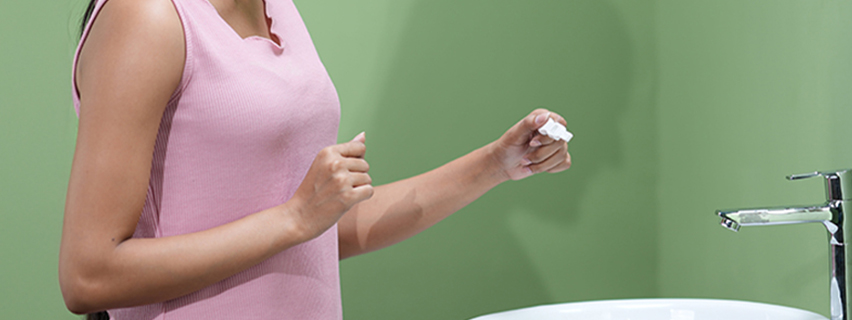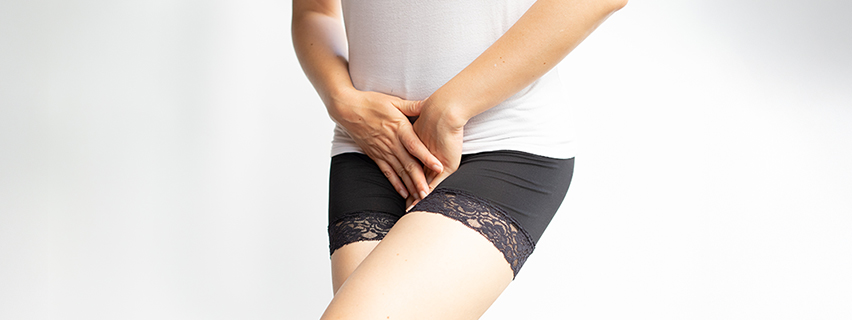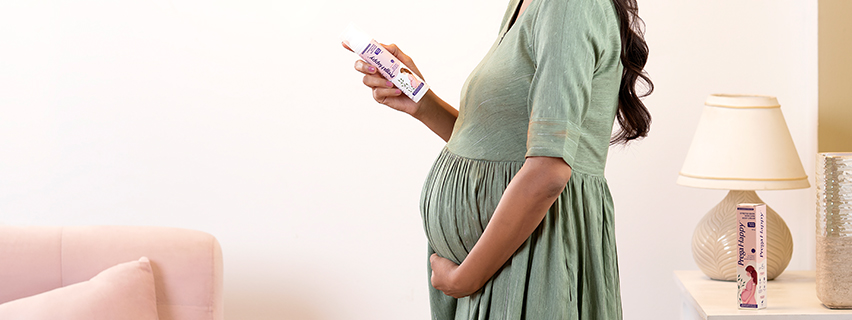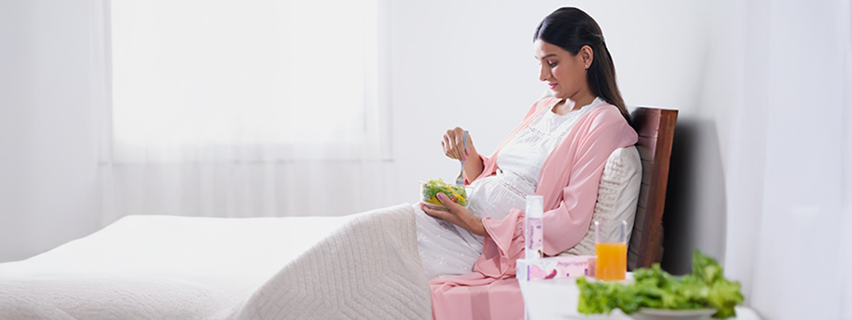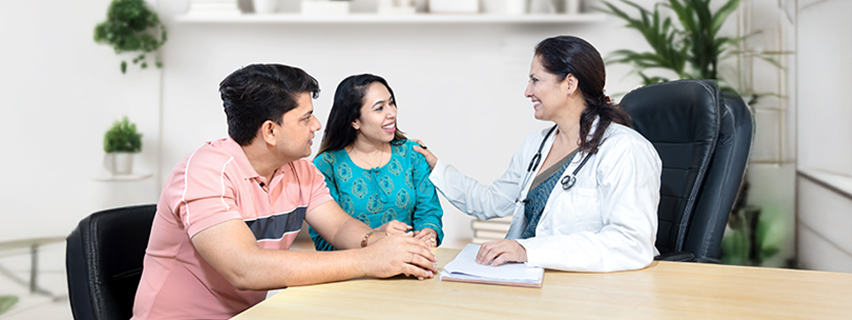A pregnancy test helps to determine if a woman is pregnant. But the pregnancy tests look for a special hormone,i.e, HCG (Human chorionic gonadotropin). It is a special hormone because it is found in the body only when a person is pregnant.
Know all about hCG and pregnancy tests. HCG levels can help you understand your pregnancy journey.
Pregnancy Tests
Right after conception, the body starts producing HCG. The hormone production of HCG increases at a faster rate. HCG is produced in the placenta, the placenta is formed when the embryo attaches to the uterus lining. Implantation of the embryo takes place between 7 – 10 days. Two main types of pregnancy tests can be done: Blood and urine tests.
A blood test is done at the clinic where the gynaecologist draws a sample of blood from you, whereas, on the other hand, urine tests are taken at home, where you pee on the pregnancy test. A blood test is more expensive but accurate and can also tell you about the HCG level in the body.
A pregnancy kit can be purchased from the pharmacy and does not need a prescription. Many people go for the pregnancy kit as it is cheap and convenient, and it is 99% accurate.
Due to technological advancements, a healthcare professional can confirm a pregnancy with the help of an ultrasound, which is done at the clinic.
How does a pregnancy test work?

A pregnancy test works by detecting the HCG hormone in the body; if it is present, a positive sign or two lines will be shown on the pregnancy test. But there has to be a certain level of HCG hormone present in the body. HCG starts doubling after conception. Which means, if you take a pregnancy test too soon, it might come back negative.
If you are planning on using a pregnancy kit at home, ensure you do it first thing in the morning, as at that time, HCG levels are high and there is a high possibility of detecting a pregnancy. But in case you have missed the morning time, do it later in the day, but ensure fluids are not consumed, as HCG levels can be diluted.
Human Chorionic Gonadotropin (HCG) Levels
A pregnancy test detects a pregnancy depending on the human chorionic gonadotropin hormone present in the body. HCG is an important hormone, and it is made in the placenta. It plays a prime role in pregnancy as it helps to nourish and sustain the fertilized egg, thickens the uterus lining, which helps to maintain the fetus, and prevents menstrual cycles. HCG levels start doubling every 72 hours. Post-birth giving, HCG levels go back to normal.
A healthy pregnancy may have low hCG levels. People who are not pregnant have 5mIU/mL hCG levels, whereas on the other hand, pregnant women should have hCG levels above 25 mIU/mL.. If HCG levels are between 6 to 24 mIU/mL, get them checked with a doctor.
If you are pregnant and have low hCG levels below 5 mIU/mL, rush to the doctor immediately and get it checked. Moreover, having a very high level of hCG in the body is also not good and should be examined by a doctor.
Ectopic pregnancy, miscarriage, and blighted ovum ( a type of early miscarriage) are some of the reasons HCG levels might be low. A very high level of HCG can be a sign of molar pregnancy (abnormal pregnancy), or you may be having twins.
HCG Pregnant Test
There is an HCG pregnancy test available that helps to track the pregnancy journey. There are two types of HCG pregnancy tests available: Qualitative and Quantitative.
A qualitative test detects if HCG is present, which helps to understand if you are pregnant or not. On the other hand, Quantitative tests help to measure HCG levels in the blood or urine. It is mostly used when the well-being or the location of the fetus has to be monitored.
Also Read – How to use the Prega News Pregnancy Test Kit?
How does the HCG pregnancy test work?
A blood sample is drawn from the pregnant person by inserting a needle in the vein to test. This test is also known as Venipuncture, as blood is collected from a vein. The area from where blood is going to be drawn that place is cleaned with a septic. An elastic band is put on the arm, which causes the veins to swell as the blood starts flowing out. Then a needle is inserted into the vein and blood is collected.
A urine sample can also be collected. The test helps to check if the body is producing the right amount of HCG levels, which is required to sustain the developing fetus. It helps to determine the age of the fetus and if it is growing well. HCG can help detect any abnormal pregnancies. It promotes the production of progesterone and also helps to form the umbilical cord. Human Chorionic Gonadotropin (HCG) plays an important role in pregnancy as it helps to sustain and maintain the developing fetus. Pregnancy tests detect a pregnancy only if the hormone is present in the body. HCG levels help tell you a lot about your pregnancy.
Also Read – Home Pregnancy Test: What, How to & Types
Frequently Asked Questions
Q. What are the two types of pregnancy tests?
Blood and Urine Tests are the two types of pregnancy tests. A blood test is taken at the clinic by a professional. On the other hand, Urine tests can be done anywhere.
Q. Which are the two types of HCG pregnancy tests?
Qualitative and Quantitative are the two types of HCG pregnancy tests.
Q. What is Venipuncture?
Venipuncture is a test where blood is drawn from the vein of a pregnant woman.
Q. Why does an HCG pregnancy test help?
An HCG pregnancy test can tell you about your levels if they are too high or too low. It can tell you about your pregnancy journey.
























